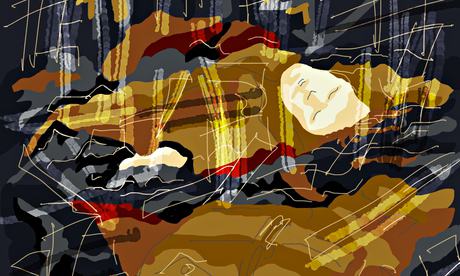
The concept for an app based on the war poetry of Wilfred Owen came as the result of reading a very early e-book containing a collection of his work. While I appreciated the portability of an e-book, I felt that such powerful and moving words could be so much better delivered if more use was made of the interactivity offered by devices such as iPads.
Owen’s words didn’t read like the poetry to which I’d previously been exposed. To me they provided vivid eye-witness reports from the frontline and described the horrors faced by the ordinary British soldier. As I read them, I heard them being spoken by a woman, a maternal figure, and this triggered a creative string of events.
Outlining my basic ideas to my faculty at Anglia Ruskin University and a leading expert in this field at Girton College resulted in positive encouragement and offers of support. There was no going back.
The main concept of The War Poetry of Wilfred Owen app was to provide interactive access to the poems, both written and audio. Poetry is, after all, meant to be read out loud and therefore listened to, something digital platforms can easily accommodate. Then followed two further ideas: the reader might also be interested in finding out more about the work, so why not include academic commentary and an illustration relevant to each poem? This way the reader would be drawn into a rich and informative experience.
The app not only had to provide the essential ingredients but also look the part so a lengthy process of design evolution began. It was a process that helped to “sell” the idea to prospective contributors and supporters; the more it progressed the more it developed. Much like throwing a pebble into a stream, the ripples continued to flow outwards to trigger other ideas and attract interest.
Using a female voice for the poems upset the traditionalists. Some said that “it must be voiced by a young man” while a large majority found it a unique and stimulating perspective. The approach was to assume the position of a soldier, not necessarily Owen, writing words both descriptive and artistic which he then sent home.
In all likelihood the first person to open and read a letter recognisable as being from the front would be a mother or wife. The words would provide a glimpse into both the physical experience and of the soldier’s state of mind. It was never the intention to try and represent Owen and his situation but rather use his words to conjure up the assumed setting. During the many hours of recording, all who took part voiced similar feelings of emotion, thoughtfulness and of being incredibly moved. Indeed, the contemporary serving officers and partners of those still serving (who read some of the poems for the app) found that Owen’s words have a powerful resonance even today.
A task of this size and complexity (45 poems, 15 readers and four academic commentators) consumed huge amounts of time and energy, so it was essential to structure the process to ensure all elements were ready when needed for the build process. More so given it was, essentially, produced by one person (me).
A typical day would involve illustration in the morning and page design or build in the afternoon, interspersed with audio and video recording sessions and subsequent editing of those files. Without this discipline it might still be swirling around in the vortex that accompanies such projects, all the while threatening to suck you down into the abyss along with all the other projects that didn’t see the light of day.
Initially I tried to obtain funding to ease the process but this proved to be exceptionally difficult. There were plenty of favourable comments but nothing tangible. This resulted in the opinion that if I wanted to get this produced then I would have to do it myself, together with those readers and academics who so generously donated their time to the app.
I’m extremely pleased with the result and I’m delighted with the reception it has received among reviewers and users. I’m also working on various “spin-off” projects from the Owen app and have now been asked to produce something similar focusing on the life and work of poet and composer Ivor Gurney, as well as an app that features the words and images of contemporary military conflicts, enabling those who experience modern warfare to share a platform with great voices such as Owen.
App facts
Length of the project: three months’ planning, 15 months’ development
Size of the team: one (me!)
Ian Bennett is a lecturer at Anglia Ruskin University
More App stories
• How we made the Centenary Connections first world war app
• How we made kscope, an image-sharing app for university applicants
• How we made the Romans app for iPad, iPhone and Android
Join our community of arts, culture and creative professionals by signing up free to the Guardian Culture Pros Network.

